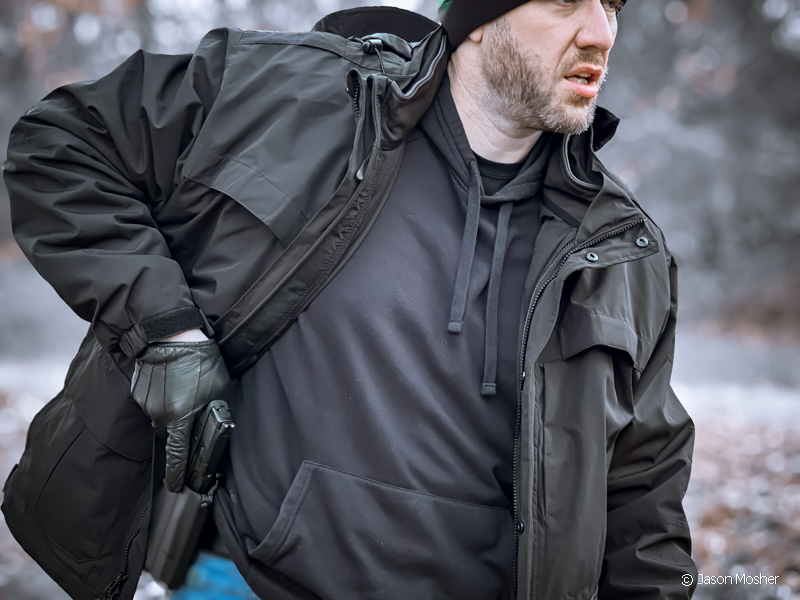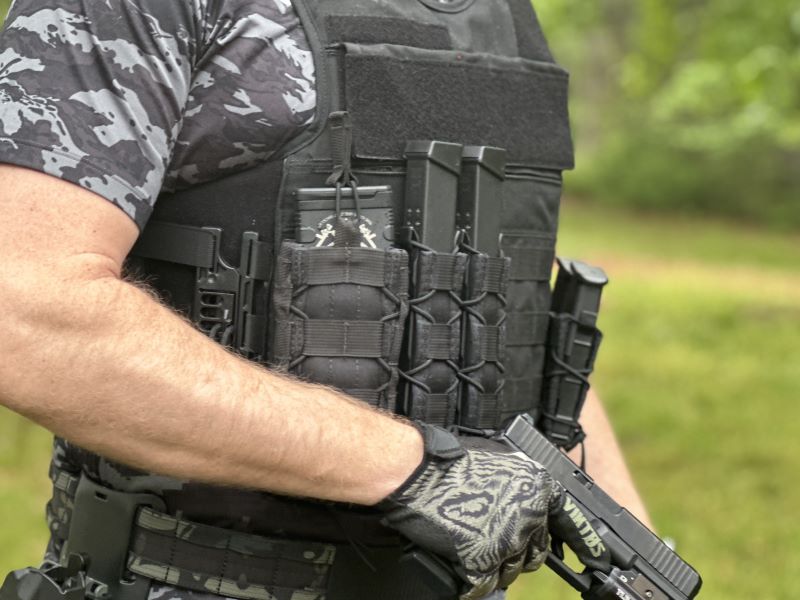Being prepared for self-defense means a lot of different things to a lot of different people. The same goes for survival and general preparedness. It’s all a matter of perspective, ability, and common sense. In the emergency services world, we like to say, “You can never be too prepared.” While I agree with that statement, I also think there is a sensible way to be ready. With a career in law enforcement, I believe most people are not prepared enough.

Preparing for self-defense is a little different than preparing for natural disasters, but it’s still important to plan and prepare. How you respond and even what you do after a self-defense incident are extremely important. But can you go overboard with your preparations? The answer isn’t a simple yes or no, but there is an answer somewhere in that foggy line of reason. In this article, we are going to look specifically at preparing for self-defense and surviving the incident.
Preparing for Self-Defense
At first thought, self-defense is simple, right? Buy a gun, get a CCW permit (if required), and now you’re ready to go. Except there is much more to it than that. You must train with your weapon and understand its strengths and limitations. When I prepare for self-defense, I start by finding ways to reduce my chances of a conflict to begin with. We can’t always avoid this, but it’s good to try. For example, pay attention to where you park your car, the route you take when walking or jogging, and so on.

Don’t forget about the mental aspect of self-defense training, either. Thinking about how you will respond in different scenarios will help you respond faster in real life. When I go out in public, I look around and think of what I would do if someone started shooting. Where are the exits? Where is the nearest place for cover? Can you get to your gun? If you think about this ahead of time, your body will respond accordingly if something happens.
Surviving After an Incident
Surviving is more than fighting; it includes reacting after an incident has taken place. This is often our biggest training neglect in life. Going to the range and shooting a target is good. However, training shouldn’t be limited to shooting a gun at a target. If you fire a weapon in self-defense, a lot will take place right after. There will be chaos, and people may be injured. Find some medical training from local organizations like the Red Cross or a hospital. Keep a medical kit in your vehicle and even a few items on your person.

Can you prepare too much?
In general, I would say no; you can never be too prepared. Furthermore, keep in mind that training should be realistic and make sense. There are multiple levels of preparedness you can achieve depending on how much time, money, and effort you wish to give. Adding body armor, more medical supplies, or expanding your training are all viable options — within reason. Different levels of preparedness require different training. I met a guy once who decked out in full military gear for his training every time he went to the range.

Are you ready for self-defense?
It’s ok to have gear and training for those “worst-case scenarios.” But don’t get so consumed with it that you forget to prepare for everyday life. Plan and think about the most to least likely self-defense situations that could arise. Build your training and make your preparations based on that plan. It will need to be adjusted and changed as you go through life. If I’m traveling, my preparedness changes from my daily routine. Everyone’s level of preparedness and the amount of training they do will be up to them. Just make sure to spend a few minutes reflecting on what you are doing and have a plan in place. Surviving starts with planning, preparing, and training.


